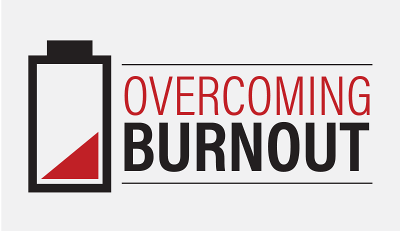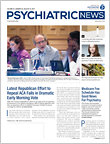The stress of changing jobs. The anxiety, sadness, or sense of loss that may accompany aging. The frustration associated with wanting to make changes in practice that are stymied by bureaucratic systems. The feelings of alienation working as a minority psychiatrist in community settings, or the conflict between the mission and the difficulty of meeting immense community needs with so few resources.
Sound familiar?
We psychiatrists are a community, and this was strikingly evident at APA’s 2017 Annual Meeting at the session titled “Physician Wellness and Burnout: A Town Hall Discussion With APA Leadership,” where these and other difficulties were expressed by clinicians wrestling with the challenges of being a physician today.
With standing room only, and many members willing to contribute their thoughts, observations, and raw emotion, it was clear that the struggle to feel balanced, well, and focused in our work is something we share.
The town hall began with remarks by then incoming APA President Anita Everett, M.D., who emphasized the organization’s commitment to addressing members’ well-being and the problem of burnout as a central theme of her presidential year. She asked attendees to let her and APA leaders know what they feel they need in this area. Saul Levin, M.D., M.P.A., CEO and Medical Director of APA, echoed these sentiments. I described the Work Group on Psychiatrist Well-Being and Burnout’s primary deliverables this year: creation of an online portal to allow members to conduct a self-assessment and receive direction to meaningful online resources; a toolkit to help psychiatrists serve as Well-Being Ambassadors in their home organizations, highlighting psychiatry’s special role among the medical specialties; and a set of educational, programmatic, and policy recommendations for APA.
More than 35 members spoke over the next hour about their experiences with well-being, burnout, and depression and shared personal crises, adaptations, solutions, and responses. The feeling in the room was of intense engagement and concern for one another, with areas of agreement and of conflict about the key drivers of stress and burnout.
Can APA help define “career milestones” to help people through important career transitions? Should APA help members explore unionization as a way of dealing with changes in the workplace? What about telemedicine? Can it help give physicians a greater sense of autonomy and control over their schedule and interactions with patients?
We know that isolation is a serious problem for physicians and an important cause and effect of burnout, and the experience of being in a large room filled with colleagues connecting with one another was affirming and fulfilling.
Probably the central theme was of the importance of physicians connecting with one another through peer supervision, discussion groups, early recognition of peers who are struggling, and the development of more effective state physician health programs. Although burnout and depression are important issues among psychiatrists, we are at lower risk than many other medical specialists, and there were several comments about how we can help colleagues in the rest of medicine. Concerns about overly demanding practice environments, insufficient autonomy, burdensome paperwork, and cumbersome electronic health records were frequent topics.
Many comments addressed the nature of well-being, burnout, and depression. Attendees shared personal experiences, including descriptions of strategies to enhance well-being, and reflected on the role one’s clinical setting, family, and age may play in vulnerability to burnout, or in resiliency.
Participants called on APA to develop models for best practices in staffing policies, contribute to the development of a better electronic medical record system, and develop benchmarks for psychiatrist productivity. Suggestions in the educational realm included curriculum development to support trainees’ awareness of career transitions, initiatives regarding medical student debt, and mentorship for career transitions.
Many expressed a strong feeling that the town hall discussion was an important first step in addressing the problem of burnout and hoped that it would be the beginning of many conversations. We promise that it will be. ■


